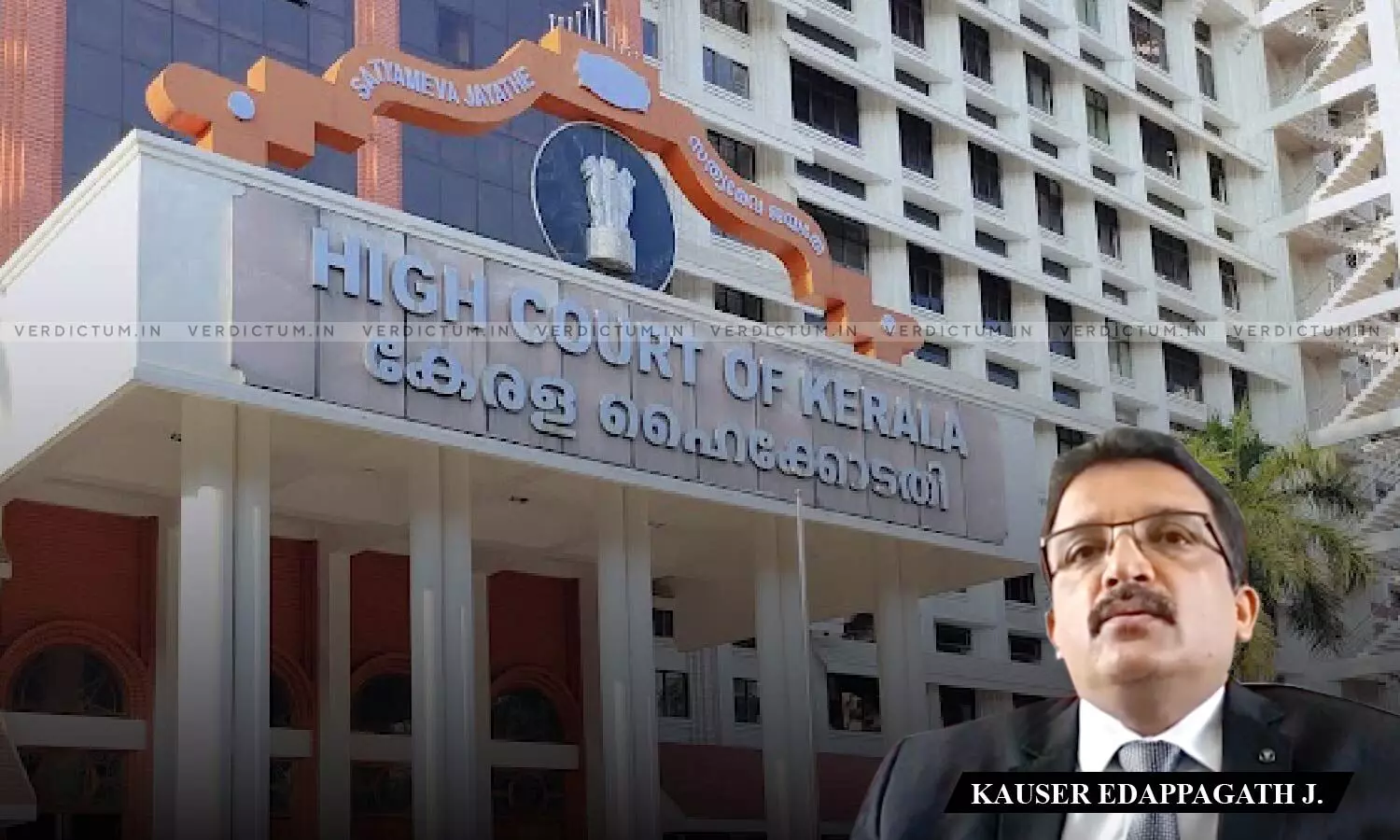
Promise To Marry Wasn't False, Parties Were In Consensual Relationship- Kerala HC While Quashing Rape Case
 |
|A Kerala High Court Bench of Justice Kauser Edappagath has quashed a rape case on the ground that the petitioner's promise to marry the complainant was not a false one and that the petitioner and the complainant were in a consensual relationship.
To that end, the Court observed that "the crucial issue to be considered is whether the allegation indicates that the accused had given a promise to the victim to marry which at the inception was false and based on which the victim was induced into a sexual relationship."
It was also observed that "the alleged sexual relationship between the petitioner and the 2nd respondent can only be termed as something out of love and passion for the petitioner and not on account of misrepresentation made to her by the petitioner."
Counsel CS Sumesh appeared for the petitioner, Counsel KV Rashmi appeared for the 2nd respondent and Counsel CN Prabhakaran was the senior public prosecutor.
The prosecution's case was that the petitioner had sexually assaulted the 2nd respondent under the false promise of marriage and that he withdrew from his promise and made preparations to marry another girl. The offences alleged against the petitioner were punishable under Sections 417, 354 A, 354B and 376 of the IPC.
On a detailed reading of the FI statement, the Court observed that the petitioner and the 2nd respondent voluntarily went to several places, stayed in hotels, and had a consensual sexual relationship. It was also noted that thereafter, the petitioner went abroad, and eventually, the relation broke down, and he decided to marry another girl.
The High Court noted that "consent" is at the centre of the offence of rape, and remarked that explanation 2 to Section 375 of IPC refers to the form of consent. Subsequently, the Court observed that "consent means an unequivocal voluntary agreement when the woman by words, gestures or any form of verbal or non-verbal communication, communicates willingness to participate in the specific sexual act." Consequently, the Court concluded that if the consent as described in Explanation 2 could be made out from the statement of the victim, the offence under Section 375 of IPC could not be said to be attracted.
Relying on the decisions in cases like Dhruvaram Murlidhar Sonar (Dr) v. State of Maharashtra, the Court held that "Drawing distinction between mere breach of a promise and non-fulfilling a promise, it was observed that if the accused has not made the promise with the sole intention to seduce the prosecutrix to indulge in sexual acts, such an act will not amount to rape and that if the accused had any malafide intention or clandestine motives, it is a clear case of rape".
In furtherance of the same, the Court noted that the circumstances in the FI statement indicated that the the petitioner was in fact ready to marry the 2nd respondent and the promise made by him was not a false one or lacking bonafide even if there was a promise to marry.
In that context, it was said that "The records show that the relationship between the petitioner and the 2nd respondent strained over time. In short, the alleged sexual relationship between the petitioner and the 2nd respondent can only be termed as something out of love and passion for the petitioner and not on account of misrepresentation made to her by the petitioner. That apart, a reading of the FI statement would disclose the consent on the part of the 2nd respondent as defined under Explanation 2 of Section 375 of IPC. Therefore, I am of the view that even if the facts set out in the FI statement are accepted in totality, no offence under Section 375 of IPC is made out."
Subsequently, the Court was of the view that no useful purpose would be served by allowing the criminal prosecution against the petitioner to continue. Therefore, all further proceedings were quashed.
Cause Title: Emmanvel Peter v. State of Kerala